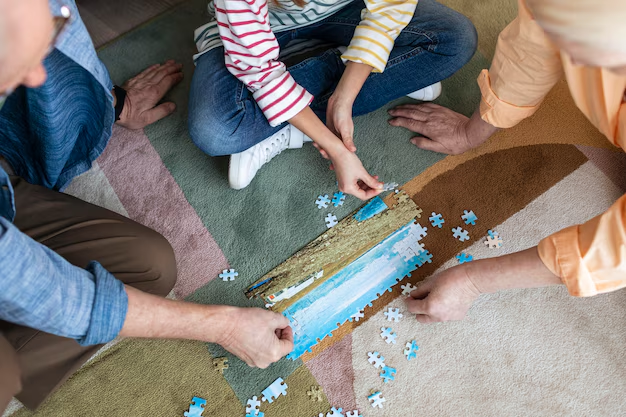Your Guide to Memory Care Activities Calendar
What You Get:
Free Guide
Free, helpful information about Memory Care FAQ and related Memory Care Activities Calendar topics.
Helpful Information
Get clear and easy-to-understand details about Memory Care Activities Calendar topics and resources.
Personalized Offers
Answer a few optional questions to receive offers or information related to Memory Care FAQ. The survey is optional and not required to access your free guide.
Engaging Memory Care Activities: A Guide to Boosting Senior Wellbeing
Caring for someone with memory impairment is both a challenging and rewarding endeavor. To enhance their quality of life, organizing engaging memory care activities is essential. These activities are designed not only to stimulate the mind but also to provide comfort, enjoyment, and a sense of belonging. Creating a well-structured calendar of activities can help caregivers plan ahead and ensure a balanced mix of exercises that cater to different needs and interests.
Benefits of a Structured Memory Care Activities Calendar
A calendar that incorporates a variety of memory care activities benefits seniors by keeping them engaged physically, mentally, and emotionally. Here's why a structured calendar is valuable:
- Routine and Predictability: For individuals with memory issues, consistency is comforting. A calendar provides structure, reducing anxiety and helping seniors know what to expect each day.
- Cognitive Engagement: Activities such as puzzles, word games, and arts and crafts stimulate cognitive faculties and can slow down cognitive decline.
- Physical Health: Incorporating physical activities like gentle yoga or walking can maintain mobility, promote cardiovascular health, and increase endorphin levels.
- Social Interaction: Group activities foster socializing, reduce feelings of isolation, and promote a sense of community among participants.
- Emotional Well-Being: Creative expression and music therapy offer emotional outlets, reduce stress, and promote joy.
Designing a Balanced Activities Calendar
When designing a memory care activities calendar, it's vital to incorporate a mix of activities that cover different aspects of well-being.
Morning Activities 🕘
Mornings are an excellent time for energetic activities:
- Exercise Classes (like chair yoga or Tai Chi)
- Brain Games (such as Sudoku or memory card games)
- Gardening (for hands-on tactile engagement)
Afternoon Activities 🕒
Afternoons can focus on creativity and relaxation:
- Art and Craft Sessions
- Music Therapy (sing-alongs, instrument play)
- Storytelling or Reading Groups
Evening Activities 🕖
Evenings should be calming, preparing participants for rest:
- Movie Night with classic films
- Simple Board Games
- Meditation and Relaxation Exercises
Incorporating Financial Planning into Memory Care
While planning activities is crucial, understanding how to fund these activities and the overall care plan can be equally important. Here’s where exploring financial assistance programs can greatly help:
- Government Aid Programs: Various government programs, like Medicaid and Medicare, may cover certain memory care services.
- Long-Term Care Insurance: Reviewing policies with a professional can highlight coverage for certain care costs.
- Veteran Benefits: Veterans may have access to additional resources and support through the Department of Veterans Affairs.
- Community Scholarships and Educational Grants: Some communities offer special funding for memory care facilities or training sessions for caregivers.
- Debt Relief and Credit Solutions: Managing finances effectively might include debt consolidation or budgeting advice, ensuring more resources are available for necessary care services.
Financial and Educational Resources: ⚡️
- 🏛 Medicaid/Medicare: Potentially covers some memory care costs.
- 📜 Long-Term Care Insurance: Can reduce out-of-pocket expenses.
- 🎖 Veteran Benefits: Specialized support and resources.
- 🏡 Home Equity Programs: Use equity to finance care.
- 📚 Educational Grants: Aid for caregiver training and support programs.
- 💳 Credit Counseling Services: Help manage and prioritize expenses.
By merging a well-constructed memory care activities calendar with comprehensive financial understanding, caregivers can ensure they are providing optimal support and care, enhancing the quality of life for those they care for.
What You Get:
Free Memory Care FAQ Guide
Free, helpful information about Memory Care Activities Calendar and related resources.

Helpful Information
Get clear, easy-to-understand details about Memory Care Activities Calendar topics.

Optional Personalized Offers
Answer a few optional questions to see offers or information related to Memory Care FAQ. Participation is not required to get your free guide.


